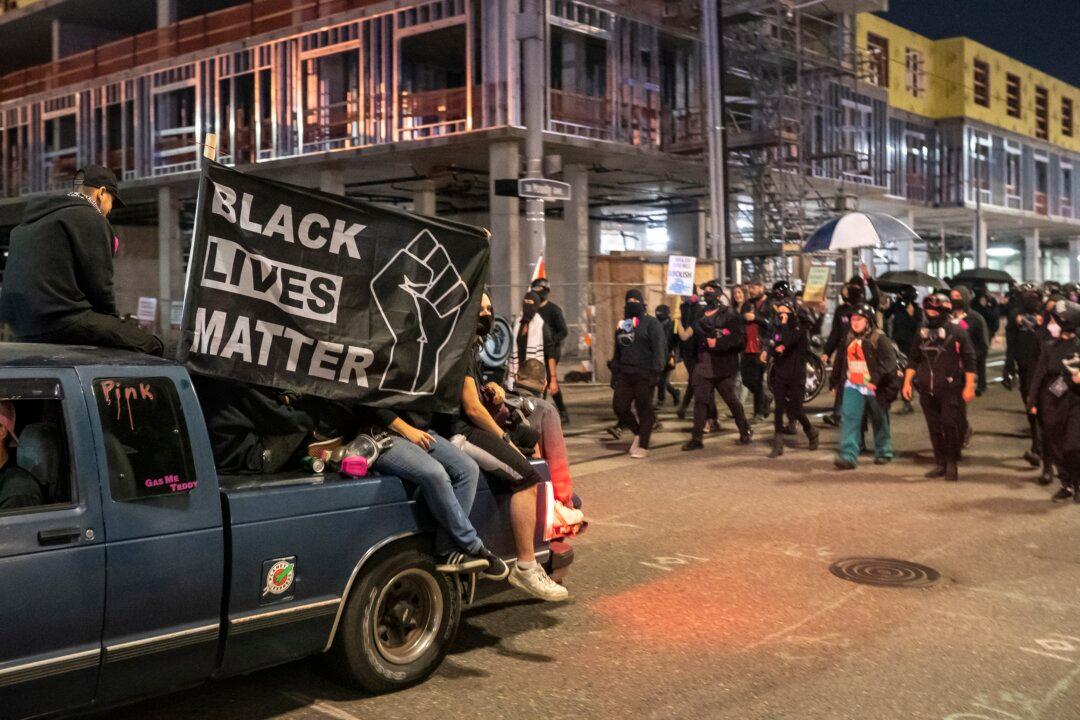Communities and residents in Portland are still struggling as the anti-police riots continue without much coverage from the mainstream media.
Portlanders who spoke to The Epoch Times anonymously (to avoid “woke” retaliation) all agreed that violence is becoming worse and is unacceptable. “There are brazen shootings and killings in broad daylight which did not happen before this past year,” said a 44-year-old man who lives in a Portland suburb. “The violence is no longer limited to nights or certain neighborhoods.”





